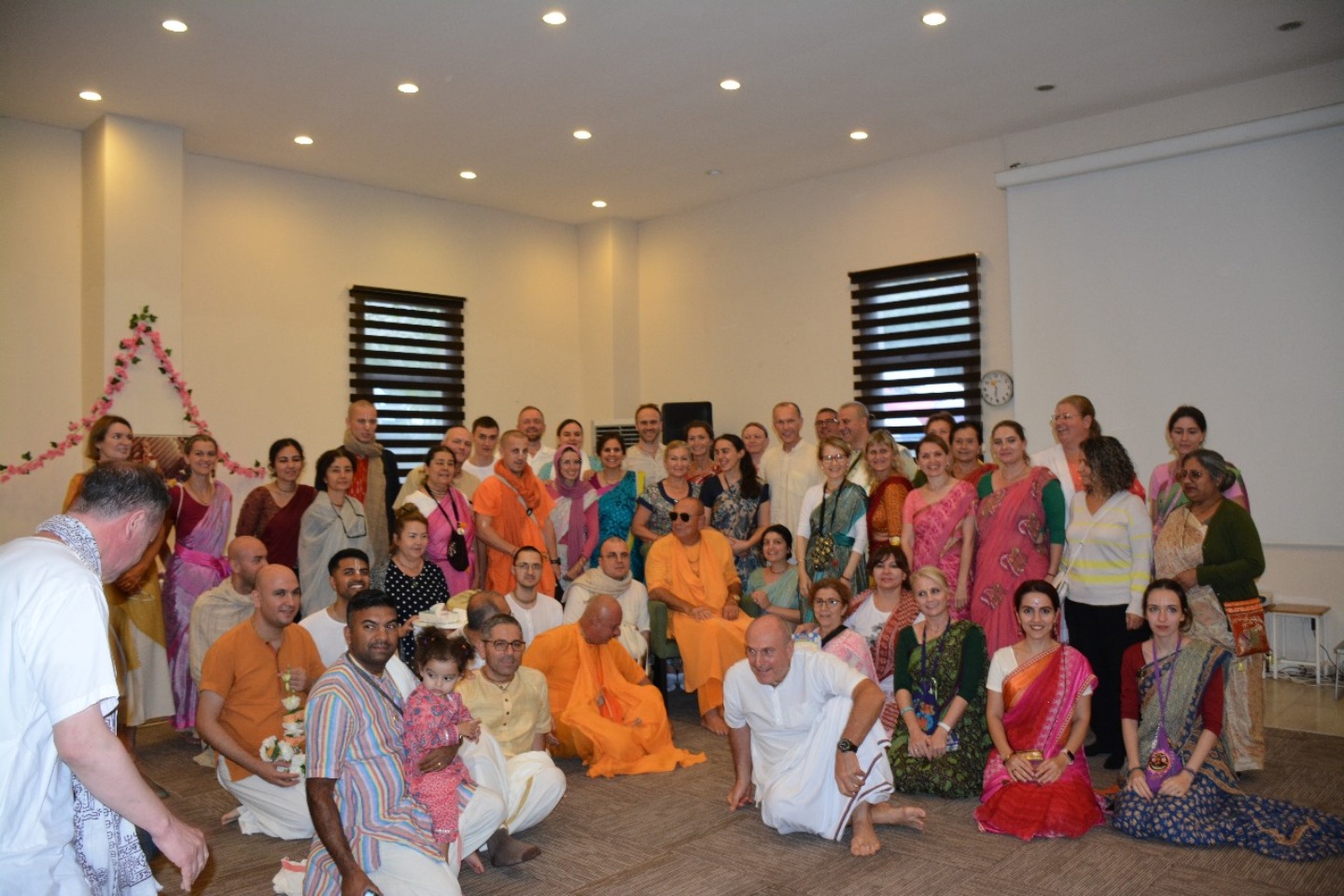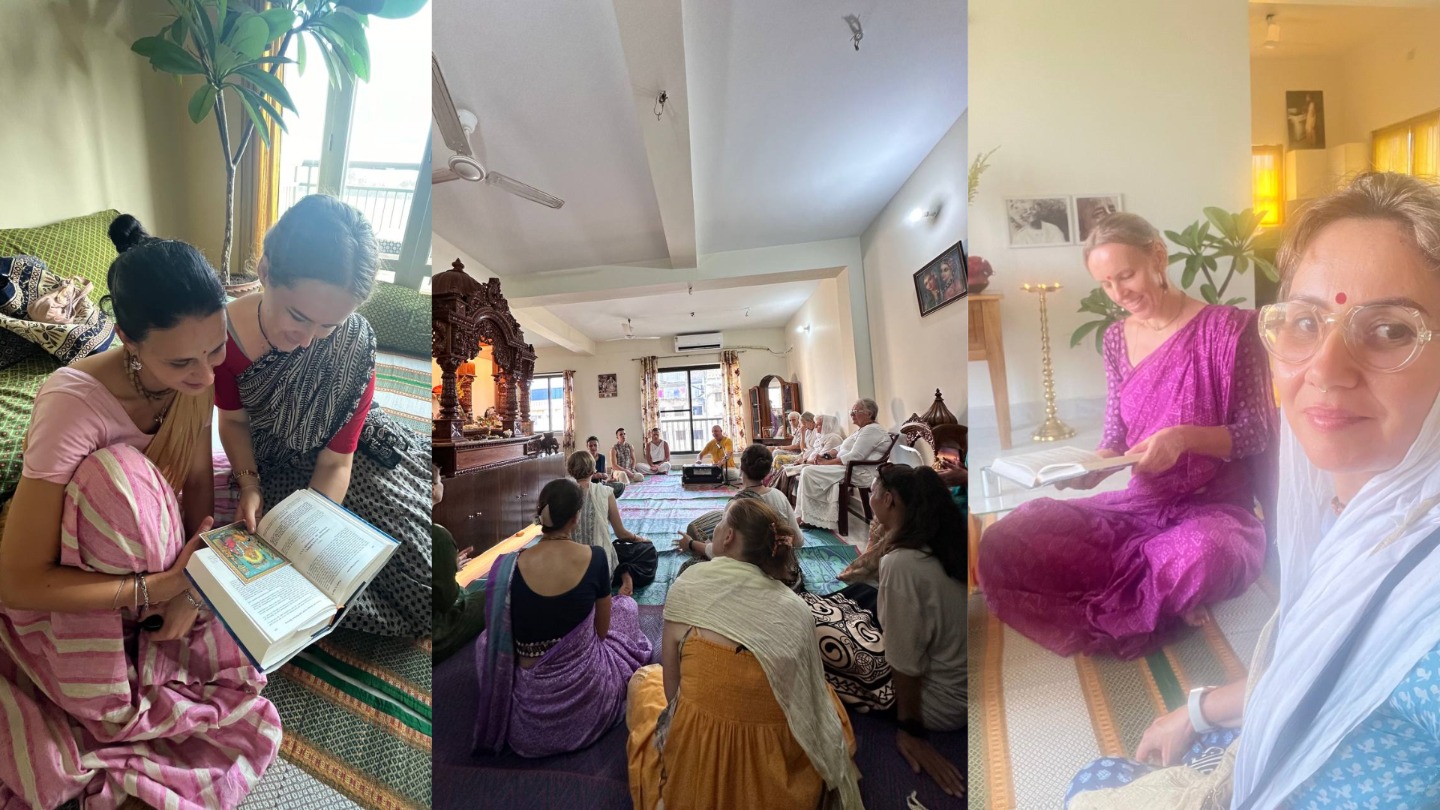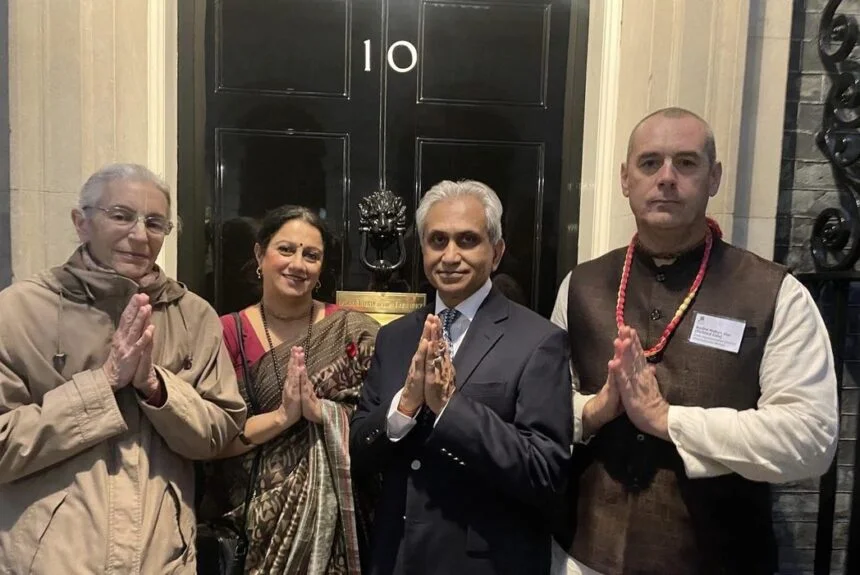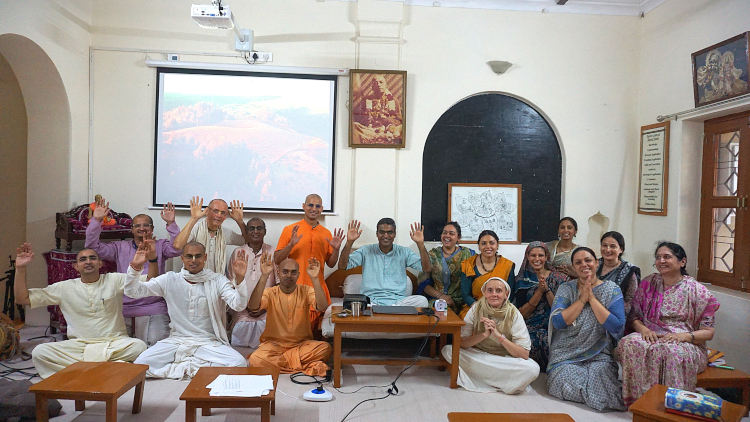ISKCON UK Delegation to Attend COP26 Climate Change Conference
By Madhava Smullen | Oct 16, 2021
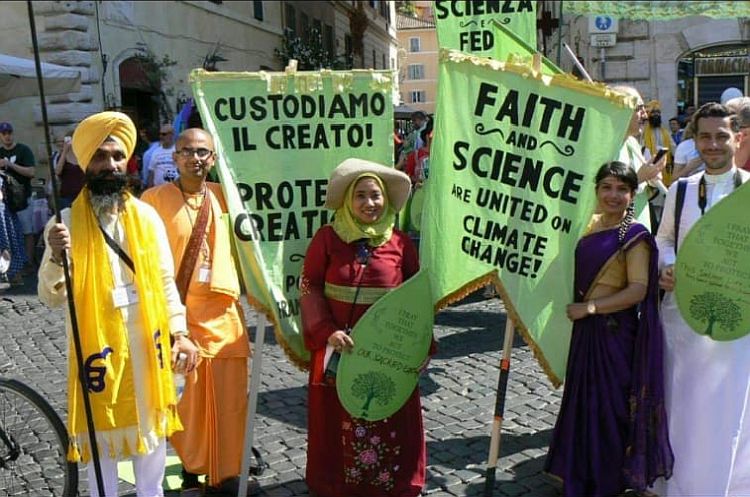
An ISKCON UK delegation is set to attend COP26, also known as the 2021 United Nations Climate Change Conference, which will run from October 31st to November 12th in Glasgow, Scotland.
The conference will bring world leaders together to discuss how to limit the increase in global temperatures to 1.5 degrees Celsius above pre-industrial levels, so as to avoid the worst impacts of climate change. They will also discuss progress made so far – many countries have already set ambitious targets to achieve net-zero emissions by 2050. COP26 has been called the most important meeting of its kind since the 2015 Paris Agreement.
Although the big decisions are being led by governments, other groups can play a major role too. For instance, with around 80% of the world’s population affiliated with a faith group, governments are reaching out to faith leaders.
In the UK, the office of MP and COP26 President Alok Sharma invited Bhaktivedanta Manor earlier in the year to take part in several climate change discussions as part of interfaith dialogue, to help mobilize communities and temples to take climate action.
Stepping forward to represent ISKCON UK at these national discussions were Sheila Chauhan, Darryl Biggs, and Roshni Thakrar. Chauhan, who works professionally in environmental campaigns and policy, created the Manor’s environment committee with Sita Rama Das a decade ago. Biggs is Assistant Director for the Ahimsa Dairy Foundation. And Thakrar works for a law firm and has a specific interest in helping businesses become more environmentally friendly.
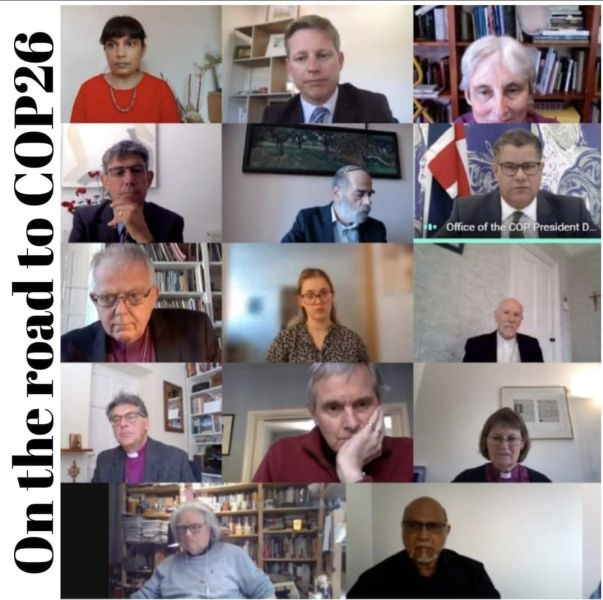
Sheila Chauhan (top left in red) presents ISKCON’s environmental achievements at the first interfaith and youth meeting with COP26 President-Designate, Alok Sharma
Creating the COP26 Working Group, the team presented to Alok Sharma on ISKCON UK’s vision to reach net-zero sustainable excellence in the areas of food, energy, water, waste management, and education. This will be achieved through the upcoming launch of a set of environmental standards – Three Tiers of Environmental Sustainability – which will be compulsory for all ISKCON temples and properties.
“I spoke about how as a faith group, we are practicing a lot of the things that COP26 is trying to encourage,” Sheila Chauhan says. “For example, how Srila Prabhupada encouraged simple living, high thinking, and creating sustainable farm communities. I also spoke about ISKCON’s projects worldwide and in the UK. For instance, in London, we have the UK’s first fully-electric food distribution van. This supports the government’s goals to decarbonize our economy and end sales of new petrol and diesel cars in the UK by 2030.”
At COP26 in Glasgow, the ISKCON UK delegates will attend the Green Zone, where the public, civil society, Indigenous Peoples, interfaith groups, youth groups, charities, academics, artists, and businesses will have their voices heard through an extensive program of events, workshops, talks, and exhibitions.
The devotees will attend various seminars, do plenty of networking, and share best practices.
“We want people there to know that in ISKCON UK and ISKCON worldwide, we are passionate about climate change issues, and are here to support and also learn from businesses, indigenous groups, and other faith groups,” Chauhan says. “We want to share our own best practices with them, and also learn from and incorporate what they’re doing.”
In addition, Chauhan says, ISKCON has joined the Hindu Environmental Task Force organized by the Hindu Forum of Britain, which will present a webinar during COP26.
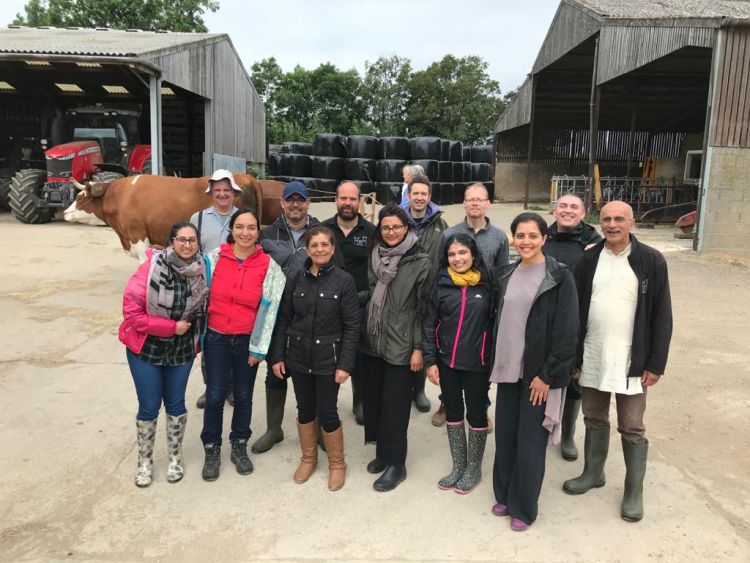
Some members of the UK Eco Bhakti team with members of the Ahimsa Farm.
The work will continue beyond COP26 as well, with ISKCON UK implementing the Three Tiers of Environmental Sustainability, starting with ISKCON-London at Soho St as the flagship temple. The first tier encourages entry-level sustainability practices in the areas of food, energy, waste management, water, and education. The second encourages practices that require a significant commitment from a temple. And the third tier includes advanced practices for those fully dedicated to living Krishna-conscious environmentalism.
Meanwhile, representatives from temples all over the UK have formed the Eco Bhakti team, which meets on a monthly basis. Under its umbrella are a variety of individual environmental projects, such as ISKCON-London’s Project Grow, wherein congregation members are asked to grow their own vegetables, fruits, and flowers for the deities.
“I really believe that we can find a spiritual solution to the environmental crisis in the timeless wisdom of our scriptures,” says Sheila Chauhan. “For instance, Mantra One in the Sri Isopanisad says, ‘Everything animate or inanimate that is within the universe is controlled and owned by the Lord. One should therefore accept only those things necessary for himself, which are set aside as his quota, and one should not accept other things, knowing well to whom they belong.’
“And in the Bhagavad Gita, Krishna says, ‘I am the taste of water, the light of the sun and the moon; I am the original fragrance of the earth, and I am the heat in fire. I am the life of all that lives.’ Just from those verses, we understand that Earth is the energy of the Divine Shri Krishna, and is deemed sacred and worthy of our protection.”
Chauhan concludes, “So if we understand that the natural elements are actually Krishna’s energies, that they belong to Him, then surely we should be protecting, preserving, and conserving them, shouldn’t we?”








